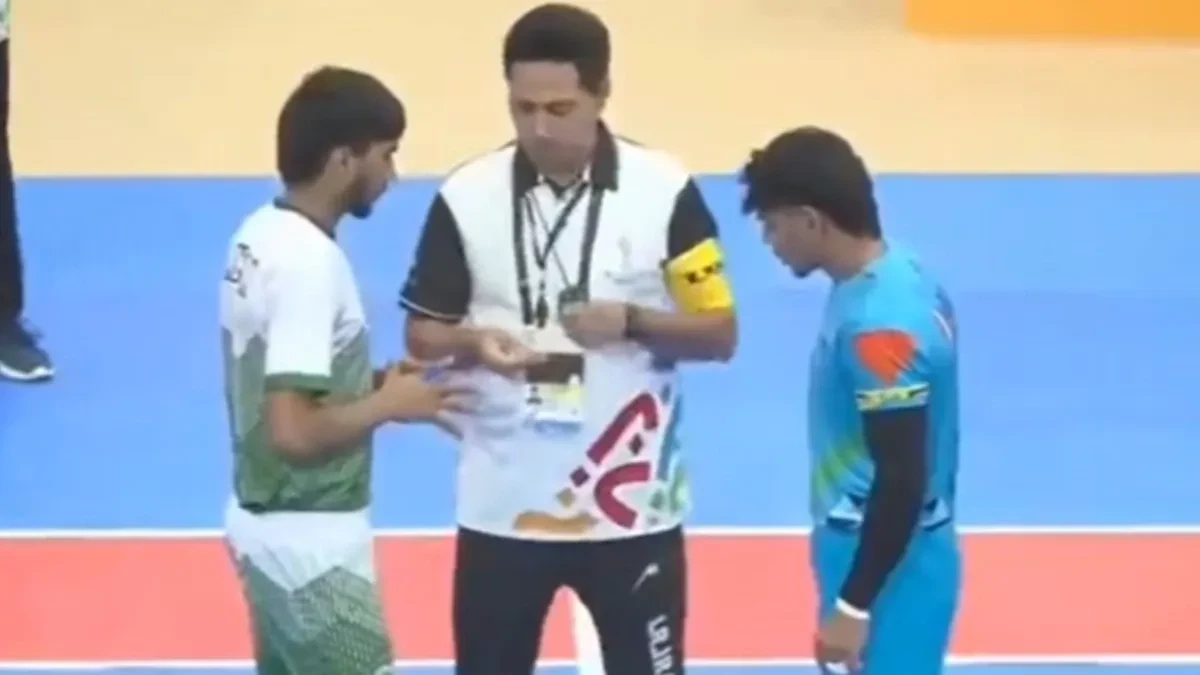India’s young Kabaddi contingent continued their golden run at the 3rd Asian Youth Games in Bahrain, but their emphatic 81-26 win over Pakistan wasn’t the only talking point of the night.
A tense moment unfolded at the toss when Indian skipper Ishant Rathee pointedly refused to shake hands with his Pakistani opposite number, adding a political undertone to what was otherwise a dominant display on the mat.
The gesture – brief yet loaded with meaning – has reignited discussions around sportsmanship and political symbolism in India-Pakistan encounters. While some fans viewed Rathee’s move as a mark of respect for national sentiment amid strained bilateral relations, others called it unnecessary in a youth tournament setting.
Regardless of the off-court drama, the Indian team showed complete authority once the whistle blew. The defending youth champions dismantled Pakistan with clinical precision, maintaining their unbeaten record after earlier thrashings of Bangladesh (83-19) and Sri Lanka (89-16). With three straight victories, India sit firmly on top of the points table in Kabaddi’s first-ever appearance at the Asian Youth Games, with Iran trailing behind in second place.
The refusal to exchange handshakes, however, is not an isolated incident. Over the past year, a quiet pattern has emerged in India-Pakistan sporting ties. During the Asia Cup, the Indian men’s cricket team led by Suryakumar Yadav opted out of the post-match handshake after their group-stage clash with Pakistan. The symbolic protest carried into the 2025 ICC Women’s Cricket World Cup, where the Indian women’s team also skipped the customary handshake line after defeating their arch-rivals.
These subtle acts have taken shape amid heightened political tensions, particularly after the Pahalgam terror attack that claimed 26 Indian lives and Operation Sindoor, both of which have deepened public sentiment against normal sporting pleasantries with Pakistan.
In that context, Rathee’s decision in Bahrain on October 20 appeared less like a spontaneous act and more like a continuation of a broader stance – a silent yet firm protest echoed through sport.
As the Kabaddi event continues in a seven-team round-robin format, India’s focus remains fixed on clinching gold. The final showdown on October 23 could cap off a perfect campaign, though fans and observers alike will be watching closely to see if another handshake moment – or lack thereof – steals the spotlight once again.
